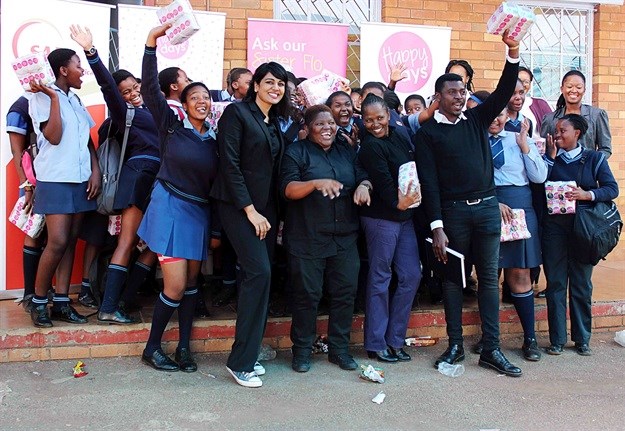Mimi Women aims to raise R10m in order to build a manufacturing plant that will produce affordable sanitary pads.
The black, female-owned sanitary towel company will be targeting 100 female entrepreneurs to invest R100,000 each in exchange for shares in Mimi Women. The company’s venture has already attracted its first investment from South African social entrepreneur Wendy Luhabe.
Luhabe founded Bridging the Gap, her first exercise in social entrepreneurship, and was also a founding partner in 1994 of Women Investment Portfolio Holdings, which listed on the JSE in 1999. In 1999 she was ranked as one of the 50 Leading Women Entrepreneurs of the World. She was also inaugurated as chancellor of the University of Johannesburg in September 2006.
As part of Mimi’s Agents for Change programme, the sanitary pads will be distributed nationwide by 10,000 previously unemployed women, to create additional job opportunities.
Mimi Agents for Change global campaign
The Mimi Agents for Change global campaign was launched in South Africa on International Women’s Day, 8 March. Through the campaign, women are able to invest in its ‘MimiBizBox’ for R799 and could turn a profit within three months. The campaign aims to bring about empowerment from the roots up, enabling women everywhere to break the cycle of poverty, take charge of their futures and invest in a business model that could break the minimum wage barrier, promoting women economic empowerment.
The business model operates off the following key elements: an online responsive platform preloaded with dropship products, which is linked to a logistical solution; information on developing vendor relations called ‘The Mimi Agents’; a 24/7 online elearning platform and educational guides and material on financial literacy, marketing and business administration.
The initiative is the brainchild of Mimi Women CEO and founder, Ramona Kasavan. “Women have the greatest motivation to assist young girls to stay the course at school and get an education. They understand that menstruation is not a choice and not having the means to manage a period is inconceivable for most. Many of the successful women entrepreneurs who we will be approaching already contribute large amounts of money through various charities to this end, but this activity is fragmented,” says Kasavan.
Viable business case
“If 100 women merely invest R100,000 each in a viable business case, which projects achieving profitability within three years, we could change the lives of hundreds of thousands of disadvantaged women across the nation. This will enable us to bypass the inevitable delays of waiting for development finance institutions for funding who may spend months studying the project and would not have the same urgency that women would for this issue.
“That is why we are announcing a call to action to all the women of South Africa. We challenge women who talk of their concerns for the upliftment of women, to swap talk for action by investing in Agents for Change and giving our country’s women the opportunity to change their current situation. We can make a difference in the lives of millions of school girls now, not in a year or two’s time,” continues Kasavan.

















































